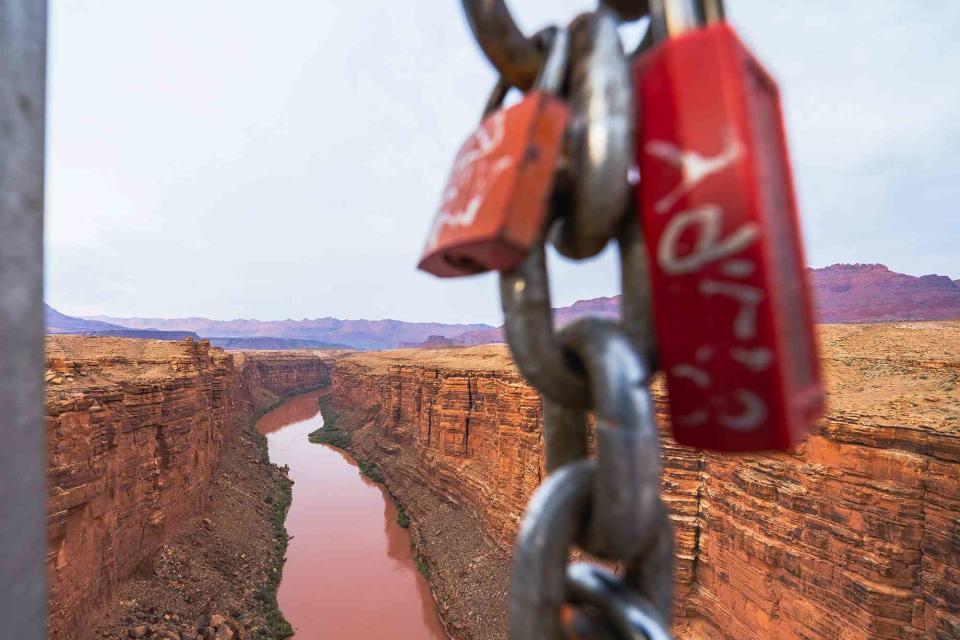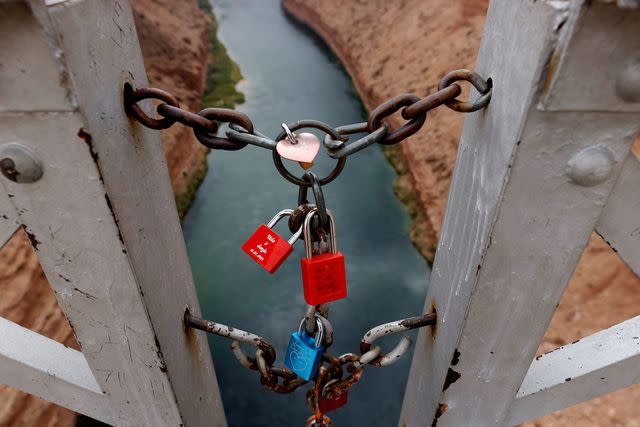Grand Canyon Asks Visitors to Stop Leaving 'Love Locks' Around National Park to Protect Wild Animals
The locks and their keys have become a health hazard for the park's condors.

Nature, food, landscape, travel/Getty Images
The Grand Canyon wants travelers to stop leaving so-called “love locks” on fencing in the park, warning the trend endangers animals.
The “love locks,” which have become a popular — and often overwhelming — trend across the world where travelers leave a small padlock as an eternal sign of their visit, are posing a health hazard for the Grand Canyon’s condors, according to a Facebook post from the National Park Service.
According to the post, the birds are curious animals and love shiny things, and “much like a small child,” they will put any interesting objects in their mouths (discarded padlock keys included).
“People think putting a lock on fencing at viewpoints is a great way to show love for another person. It's not," the National Park Service wrote. "Leaving [padlocks] like this is littering and a form of graffiti. But because people will throw their padlock key into the canyon the scenario becomes worse and more dangerous specifically for a rare and endangered animal of the canyon.”

Justin Sullivan/Getty Images
Condors who eat inanimate objects, like padlock keys or coins, may not be able to pass them on their own. They then need surgery to remove the obstruction and risk dying if they eat too many objects.
The Grand Canyon is home to the California condor, which is one of the rarest birds in the world and was once nearly extinct and now classified as endangered, according to the NPS. The species is the largest land bird in North America with a wingspan of up to 9 1/2 feet and weighing up to 23 pounds.
In 1982, the NPS said there were only 22 California Condors left in the world. Today, there are nearly 500 with more than half of those considered wild.
Currently, there are three wild populations of condors: in Arizona/Utah, in California, and in Baja California.
For more Travel & Leisure news, make sure to sign up for our newsletter!
Read the original article on Travel & Leisure.

